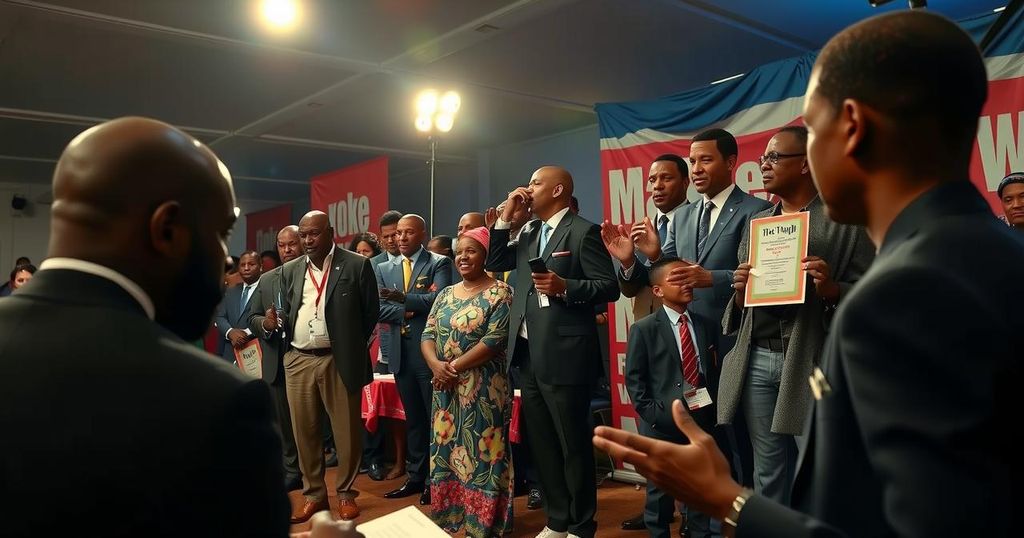Namibia Elections 2024: A New Era for Democracy in the Balance?

Namibia is set for crucial presidential and parliamentary elections on November 27, 2024. The ruling SWAPO Party faces significant challenges due to rising youth discontent. Vice President Netumbo Nandi-Ndaitwah leads SWAPO, while key opposition figures like Panduleni Itula of IPC pose threats to its dominance. Key electoral issues include economic inequality and corruption, with elections expected to be competitive given recent regional political shifts.
As Namibia prepares for its presidential and parliamentary elections on November 27, 2024, the political landscape appears increasingly competitive. This comes in the wake of significant electoral upsets observed in the Southern African region. Mounting dissatisfaction among the youth regarding the ruling SWAPO (South West Africa People’s Organisation) Party, which has governed since 1990, raises questions about its potential to maintain power.
The opposition landscape is comprised of 21 political parties vying for seats in parliament, alongside 15 presidential candidates, including Vice President Netumbo Nandi-Ndaitwah of SWAPO, who is regarded as the frontrunner. Despite her historical candidacy as the first female presidential nominee for SWAPO, analysts suggest that a lack of coordinated opposition could enable SWAPO to retain its parliamentary majority. Nandi-Ndaitwah’s tenure comes amid a backdrop of economic hardship, unemployment, and allegations of corruption, all of which have contributed to a diminishing trust in the ruling party.
Among other candidates, Panduleni Itula returns as the leader of the Independent Patriots for Change (IPC), appealing to younger voters with promises of economic reforms. McHenry Venaani and Bernadus Swartbooi represent other notable opposition movements that aspire to challenge SWAPO’s dominance. The elections will address pressing issues such as economic inequality, high unemployment rates, land reform, and a severe housing crisis.
Vote counting procedures may take longer than anticipated due to a return to traditional ballot paper methods, and while a peaceful electoral process is expected, apprehensions regarding potential disputes linger. The outcome of this election holds significant implications not only for Namibia but also reflects broader trends in political stability within the region.
Namibia, an independent democracy since 1990, has been predominantly led by the SWAPO party. Over the years, the political landscape has been characterized by a tendency for liberation parties to maintain their grip on power. However, recent regional electoral upheavals have sparked a wave of political changes, leading to increased scrutiny of the ruling parties, including SWAPO. Voter dissatisfaction, particularly among the youth, is becoming a critical factor as the elections approach. Amidst this upheaval, various opposition parties are rallying their support to challenge the long-standing dominance of SWAPO, making this election one of the most competitive in Namibia’s history.
In summary, Namibia’s upcoming elections represent a pivotal moment in its political history. The growing competition among opposition parties indicates a potential shift in power dynamics, especially in light of widespread discontent with the ruling SWAPO party. Key issues such as economic inequality, unemployment, corruption, and land reform are at the forefront of voters’ minds. The outcome of this election may serve as a harbinger of broader political changes in Southern Africa amidst a backdrop of rising democratization challenges.
Original Source: www.aljazeera.com







